My Reading List
Here’s a list of books I am reading or have read recently.
I tend to only put the books I like here, and that is why the ratings are usually high. The bad ones don’t make the list!
Technical
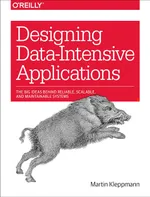
Designing Data-Intensive Applications: The Big Ideas Behind Reliable, Scalable, and Maintainable Systems
Martin Kleppmann, 2017
This is perhaps the best book I’ve read on the technology underpinning different data systems and patterns. Distributed systems, databases, streaming — it’s all here! As someone with an interest in scalable, reliable, and maintainable systems, this book was a gold mine.
This is the only book I would consider required reading for anyone working with data systems. This is also my most-purchased book. I have bought 5 copies (so far!) for friends and colleagues.

C++ Concurrency in Action
Anthony Williams, 2012
This book covers the fundamentals of concurrent programming in C++. However, it’s not just a book about C++ — it’s a book about concurrent programming in general.
It covers locks, futures, promises, software transactional memory, and lock-free programming.
Non-Fiction
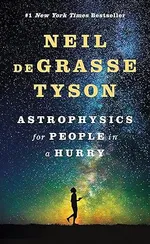
Astrophysics for People in a Hurry
Neil deGrasse Tyson, 2017
A short and sweet introduction to astrophysics. It’s a great read if you’re interested in the topic but don’t want to get too deep into the details.
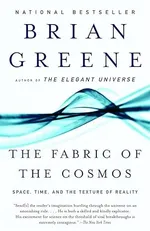
The Fabric of the Cosmos: Space, Time, and the Texture of Reality
Brian Greene, 2005
Neil deGrasse Tyson’s book really got me interested in cosmology, so I decided to read this book next.
Our universe is a strange and wonderful place, and this book does a great job of showing it. It explores famous scientists and how we arrived at our theory of cosmology.
It explores dark matter, dark energy, and the big bang, the nature of time, space, and gravity.
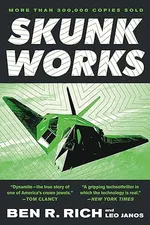
Skunk Works: A Personal Memoir of My Years at Lockheed
Ben Rich, 1996
The insane story of the development of the U-2, SR-71, F-117, and stealth technology in general.
It’s written by Ben Rich, the second director of Lockheed’s Skunk Works, and it’s a fascinating read.
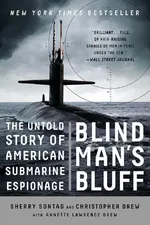
Blind Man's Bluff: The Untold Story of American Submarine Espionage
Sherry Sontag, Christopher Drew, 1998
The story of the US submarine espionage program during the Cold War, covering submarine development, operations, strategy and the intelligence gathered.
A perfect book. A page turner.
The submarine force is known as the “silent service” because of its secrecy. This book has an immense amount of research and interviews with submariners covering some of the least known yet most impactful events in world history.
Several US submarines mysteriously sank due to defective ordinance, and there is evidence that the Navy covered it up.
The US used submarines to tap Soviet communication cables underwater and listen in on their communications at the highest levels.
The amount of heroism and sacrifice in this book is incredible, and I now have great respect for the submariners of the US Navy. I am glad this book can tell their story, one faithfully taken to the grave by many of them.

Stalin: Paradoxes of Power, 1878-1928
Stephen Kotkin, 2014
More than for any other historical figure, even Gandhi or Churchill, a biography of Stalin, as we shall see, eventually comes to approximate a history of the world.
A very thorough, meticulously researched and cited biography of Stalin.
I started reading this because I was interested in what life was like in the Soviet Union — I literally could not imagine it. After learning what it was like, I wanted to know why it was and how it got that way.
My takeaways from this book are that Stalin was a very smart, very capable, and very evil. He was also a true believer that thought the ends justified the means, and he was willing to do whatever it took to achieve his goals.
This book hilites the evils of ideologues.
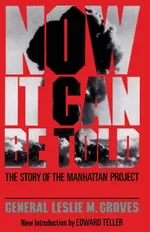
Now It Can Be Told: The Story of the Manhattan Project
Leslie Groves, 1962
A first-hand account of the Manhattan Project from the man in charge of it.
Like many other people, I prepared for watching Oppenheimer by reading about the Manhattan Project. Instead of American Prometheus, I decided to read this autobiography of the time.
The amount of pressure and responsibility that Leslie Groves had to deal with was immense, and it’s interesting to read about how he handled it both personally and professionally.
The egos at play in the project were also fascinating to read about — it reminds me of managing software engineers.
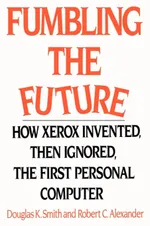
Fumbling the Future: How Xerox Invented, Then Ignored, the First Personal Computer
Douglas K. Smith, Robert C. Alexander, 1988
A fascinating story of how Xerox invented the personal computer, and then let it slip through their fingers.
This book is a great read for anyone interested in the history of technology and business.
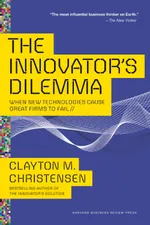
The Innovator's Dilemma: When New Technologies Cause Great Firms to Fail
Clayton M. Christensen, 1997
A classic book on business and technology.
This covers how companies can become too focused on their current products and miss out on new technologies that could disrupt their business.
For large companies with optimized products, in the near term the best return on investment is to continue to optimize their current products.
This leads to lack of investment in new technologies, which can lead to their eventual downfall.
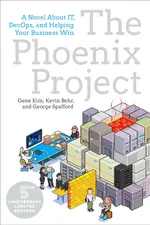
The Phoenix Project: A Novel about IT, DevOps, and Helping Your Business Win
Gene Kim, Kevin Behr, George Spafford, 2013
A novel how to coordinate IT, business, and management.
This book does a great job showing how IT can be a bottleneck in a company, and how to fix it. As well as anti-patterns to avoid which at first seem like good ideas.
As a software engineer thrown into DevOps, I found this book very helpful as a north star for the goals of DevOps.
It’s presented kind of weird as a novel, but it’s a good read.

Ignition!: An Informal History of Liquid Rocket Propellants
John D. Clark, 1972
This is a short, fun, and old read about the history of rocketry in general and the propellants that were developed to power them.
They are very, very nasty chemicals, and the book is full of stories of accidents and explosions.
What more can you ask for?